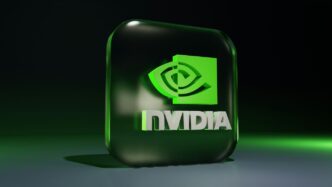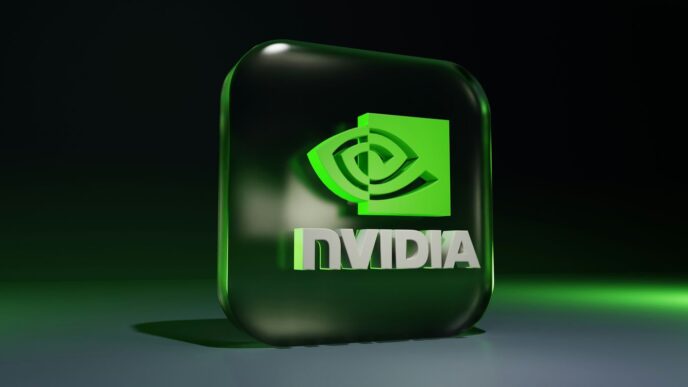So, you’ve heard about FAANG companies, right? Maybe you’re wondering what the FAANG meaning actually is. Well, it’s a pretty big deal in the tech world. These companies are super well-known, and a lot of people want to work for them. This article is going to break down what FAANG stands for, why these companies are so important, and what it’s like to be a part of their world. We’ll talk about everything from getting a job there to what life is like once you’re in. It’s a lot to cover, but we’ll go through it step by step.
Key Takeaways
- The FAANG acronym started with Facebook, Apple, Amazon, Netflix, and Google, but the group has changed over time to include other big tech names.
- Working at these companies often means good career chances, new ideas, and competitive pay.
- Getting a job at a FAANG company usually involves a tough interview process, with technical tests and questions about how you act at work.
- To do well in these interviews, you need to be good at data structures, system design, and solving problems.
- Once you get an offer, it’s smart to negotiate your pay and benefits, and know that work-life balance can be different for everyone in these big tech places.
Understanding the FAANG Acronym

The Original FAANG Companies
So, FAANG. You hear it all the time, right? It’s like the VIP club of tech companies. But what does it actually mean? Well, it started as an acronym, coined to represent five of the most successful and influential tech companies. Originally, FAANG stood for Facebook (now Meta), Apple, Amazon, Netflix, and Google (now Alphabet). These weren’t just any companies; they were the ones driving innovation and shaping the digital world as we know it. They were the darlings of Wall Street, and everyone wanted a piece of them. It’s interesting to think back to when Netflix was just a DVD-by-mail service, and now it’s a streaming giant. Times change, and so do companies.
Evolution of the FAANG Group
Things in the tech world move fast. Really fast. And the FAANG acronym hasn’t been immune to change. While the original companies are still powerhouses, some argue that the acronym itself is outdated. You might hear people talking about FAAMG now, which swaps out Netflix for Microsoft. Or even MAANG, which is Meta, Apple, Amazon, Netflix and Google. The point is, the tech landscape is always shifting, and the companies that dominate it evolve over time. It’s not just about market cap, but also about influence, innovation, and future potential. Think about it: who knows what the next FAANG will be? Maybe it’s a company we haven’t even heard of yet! Keeping up with interview preparation is key.
Beyond the Acronym: Why These Companies Matter
Okay, so FAANG is just an acronym, but why does it matter so much? Well, these companies aren’t just big; they’re trendsetters. They set the standard for everything from workplace culture to technological innovation. Working at a FAANG company is often seen as a golden ticket in the tech industry. They offer huge salaries, amazing benefits, and the chance to work on projects that impact millions of people around the world. Plus, they attract some of the smartest people, so you’re constantly learning and growing. But it’s not all sunshine and rainbows. The work can be demanding, the competition is fierce, and the pressure to perform is always on. Still, for many, the rewards outweigh the challenges. These companies are more than just names; they’re symbols of success and innovation in the modern world.
The Allure of FAANG Employment

So, why does everyone want to work at a FAANG company? It’s not just hype. There are some pretty solid reasons why these jobs are so sought after. Let’s break it down.
Unparalleled Career Opportunities
FAANG companies are big, and that means lots of different roles and chances to move around. You’re not stuck in one place; you can try different things and grow your career in many directions. Think about it: you could start in software engineering and then move into product management, or even try your hand at research. The possibilities are pretty wide open. Plus, they often have internal programs to help you learn new skills and move into different areas. It’s like a playground for your career.
Innovative Work Environments
These companies are known for pushing boundaries. They’re working on some of the coolest, most cutting-edge stuff out there. You’re surrounded by smart people who are passionate about what they do, and that can be really inspiring. It’s not your typical 9-to-5 grind. They encourage new ideas and experimentation, so you get to be part of creating things that could change the world. It’s a chance to work on projects that are actually interesting and challenging.
Competitive Compensation and Benefits
Okay, let’s be real: the money is a big draw. FAANG companies pay well, often better than most other places. But it’s not just the salary. They also offer great benefits packages, like health insurance, retirement plans, and perks like free food, gym memberships, and generous vacation time. It all adds up to a pretty sweet deal. Here’s a quick look at what a typical compensation package might include:
- High base salary
- Stock options or restricted stock units (RSUs)
- Performance-based bonuses
- Comprehensive health, dental, and vision insurance
- Paid time off and holidays
It’s a package designed to attract and keep top talent, and it works. Getting a FAANG job can really set you up for financial security and a comfortable lifestyle.
Navigating the FAANG Interview Process
So, you’re aiming for a job at a FAANG company? Awesome! But let’s be real, the interview process can feel like climbing Mount Everest in flip-flops. It’s tough, but definitely doable with the right prep. Let’s break down what you can expect.
Initial Screening and Technical Assessments
Okay, first up is usually the initial screening. Think of this as the recruiter’s way of making sure you’re not a robot. It’s often a quick phone call to chat about your background and see if you generally fit the role. Then comes the technical assessment. This is where your coding skills get put to the test. Expect coding challenges on platforms like HackerRank or LeetCode. Brush up on those data structures and algorithms! They want to see how you approach problems and write clean, efficient code. Don’t just aim for a working solution; focus on optimization and readability. This stage is all about proving you can actually code.
Onsite Interview Structure
If you make it past the screening and assessment, congrats! You’re onto the onsite interviews. This is where things get intense. Expect a full day of back-to-back interviews with engineers, managers, and maybe even someone from HR. Each interview will focus on different aspects, like coding, system design, behavioral questions, and your past projects. Be prepared to whiteboard solutions, explain your thought process, and answer tough questions about your experience. They’re not just looking for technical skills; they want to see how you think, how you collaborate, and how you handle pressure. Remember to breathe and stay calm, even when faced with a tricky problem. Understanding the interview process is key.
Preparing for Behavioral Questions
Don’t underestimate the behavioral questions! These are designed to assess your soft skills, like teamwork, communication, and problem-solving. They want to know how you’ve handled challenges in the past and how you work with others. Use the STAR method (Situation, Task, Action, Result) to structure your answers. Think of specific examples from your past experiences that demonstrate the qualities they’re looking for. For example, instead of saying "I’m a good team player," describe a time when you successfully collaborated with a team to achieve a goal. Be honest, be specific, and show them why you’re a great fit for their company culture. Remember, they’re not just hiring a coder; they’re hiring a person. Here’s a quick guide to some common behavioral questions:
- Tell me about a time you failed.
- Describe a situation where you had to work with a difficult colleague.
- How do you handle stress and pressure?
Key Skills for FAANG Success
So, you want to work at a FAANG company? It’s not just about knowing how to code; it’s about how you code and how you think. These companies look for specific skills that go beyond basic programming knowledge. It’s about problem-solving, system design, and being able to communicate your ideas effectively. Let’s break down the key areas you need to focus on.
Mastering Data Structures and Algorithms
This is the big one. You absolutely must have a solid grasp of data structures and algorithms. I mean, really solid. We’re talking arrays, linked lists, trees, graphs, sorting, searching – the whole shebang. It’s not enough to just know what they are; you need to know when and how to use them efficiently. Expect to be tested on this, a lot. Brush up on your Big O notation too; they love that stuff. It’s the foundation for everything else.
System Design Fundamentals
Knowing how to code is one thing, but knowing how to design a system that can handle millions of users is another. FAANG companies deal with massive scale, so they need engineers who can think big. You should be familiar with concepts like load balancing, caching, databases, and distributed systems. Don’t worry if you don’t have years of experience building these things; they’re more interested in your thought process and your ability to reason about trade-offs. Think about how AI is transforming the financial services industry and how those systems are designed.
Problem-Solving and Critical Thinking
FAANG interviews are designed to throw curveballs at you. They want to see how you react when you’re faced with a problem you’ve never seen before. Can you break it down into smaller parts? Can you identify the key constraints? Can you come up with a creative solution? It’s not always about getting the right answer; it’s about showing that you can think logically and communicate your reasoning clearly. Practice coding challenges, participate in hackathons, and generally try to expose yourself to as many different types of problems as possible. The more you practice, the better you’ll become at thinking on your feet.
Tailoring Your Application for FAANG
So, you’re aiming for a job at a FAANG company? Awesome! It’s not just about having the skills; it’s about showing them off in the right way. Think of your application as your personal marketing campaign. You need to make them want you. Let’s break down how to do that.
Crafting an Impactful Resume
Your resume is your first impression, so make it count. Ditch the generic templates and focus on clarity and impact. Quantify your achievements whenever possible. Instead of saying "Improved efficiency," say "Improved efficiency by 15% using X strategy." Use action verbs and tailor your resume to each specific role. I know, it’s extra work, but it’s worth it. Use tools like Huntr for tailored resumes to help you out.
Highlighting Relevant Experience
Don’t just list your past jobs; tell a story. Focus on the projects and experiences that directly relate to the role you’re applying for. Did you work on a project that used similar technologies? Did you solve a problem that showcases your problem-solving skills? Highlight those! Even if a project wasn’t a huge success, talk about what you learned from it. FAANG companies value learning and growth.
Networking Strategies
Networking can feel awkward, but it’s super important. Start by connecting with people who work at the companies you’re interested in on LinkedIn. Attend industry events (virtual or in-person) and strike up conversations. Don’t just ask for a job; ask for advice. People are usually happy to share their experiences and insights. You never know where a connection might lead. Plus, having an internal referral can seriously boost your chances of getting an interview. It shows you’re serious and that someone already vouches for you.
Post-Offer Negotiation Strategies
Okay, you got the offer! Congrats! But don’t just sign on the dotted line just yet. This is where you can really make sure the job is the right fit for you, not just the other way around. Let’s talk about how to approach the post-offer stage with a bit of strategy.
Understanding Your Value
Before you even think about countering, you need to know what you’re worth. I mean really know. Don’t just pull a number out of thin air. Do your homework. What are people with your skills and experience making at similar companies? Sites like Glassdoor and Levels.fyi can give you a good starting point. Also, think about what you bring to the table. What makes you special? What unique skills or experiences do you have that set you apart? Being able to articulate your value is key to a successful negotiation. Having a clear understanding of market standards will give you a solid foundation for negotiation.
Negotiating Compensation Packages
Alright, time to talk money. Remember, it’s not just about the base salary. Look at the whole package. Stock options, bonuses, benefits – they all add up. Don’t be afraid to ask for more, but be reasonable. Start by understanding the offer components:
- Base Salary: The fixed income you’ll receive annually.
- Stock Options/RSUs: Long-term incentives that align your interests with the company’s success.
- Sign-on Bonus: An upfront incentive, often used to bridge gaps in compensation expectations.
- Relocation Assistance: If applicable, compensation to cover the cost of moving.
If the salary is lower than you expected, see if you can negotiate a higher sign-on bonus or more stock options. Maybe you can push for a performance-based bonus that kicks in after a few months. The worst they can say is no, right? Remember to approach the negotiation with a professional and positive tone. Express your enthusiasm for the role and the company, and make it clear that your goal is to reach a mutually beneficial agreement.
Considering Non-Monetary Benefits
Money isn’t everything. Seriously. Think about what else is important to you. Do you value work-life balance? Maybe you can negotiate for more flexible hours or the option to work from home a few days a week. Are you interested in professional development? See if the company will pay for training or conferences. Maybe you want more vacation time. These non-monetary benefits can be just as valuable as a higher salary, especially in the long run. Sometimes, these aspects can outweigh a higher salary offer elsewhere. Remember, compensation is more than just salary. Consider the value of stock options, career growth opportunities, work-life balance, company culture, and other benefits.
Life and Culture Within FAANG
Work-Life Balance Realities
Okay, let’s be real. The work-life balance at FAANG companies? It’s a mixed bag. You’ll hear stories of amazing perks and flexible hours, and those exist. But you’ll also hear about long hours and intense pressure. It really depends on the specific team, the project, and your own ability to set boundaries. Some teams are notorious for demanding a lot of time, while others are more chill. It’s something to ask about during the interview process, but even then, take the answers with a grain of salt. Things can change quickly. I know someone who joined a team thinking it would be 9-to-5, and within a month, they were regularly working evenings and weekends. It’s not always the norm, but it happens. You might want to consider job security when making your decision.
Growth and Development Opportunities
One of the biggest draws of working at a FAANG company is the sheer number of opportunities for growth. They invest heavily in their employees. Think about it:
- Training Programs: They have internal training programs covering everything from new technologies to leadership skills. You can learn a ton just by taking advantage of these.
- Mentorship: Many offer mentorship programs, pairing you with experienced engineers or managers who can guide you. This can be super helpful for navigating your career path.
- Internal Mobility: It’s often easier to switch teams or even roles within a FAANG company than it is to find a new job elsewhere. This lets you explore different areas and find what you’re truly passionate about.
It’s not just about formal programs, either. You’re surrounded by smart people, and you’ll learn a lot just by working alongside them. Plus, they often encourage employees to attend conferences and workshops to stay up-to-date on the latest trends. This is a great way to improve your problem-solving approach.
Impact on the Global Tech Landscape
FAANG companies have a massive impact on the world. They’re not just building apps and websites; they’re shaping how we communicate, how we access information, and how we live our lives. Working at one of these companies means you’re contributing to that impact, for better or worse. They are known for their innovative products. Think about the scale:
- Global Reach: Their products and services are used by billions of people around the world.
- Innovation Drivers: They invest billions of dollars in research and development, pushing the boundaries of what’s possible.
- Setting Standards: They often set the standards for the rest of the tech industry, influencing how other companies operate.
It’s a big responsibility, and it’s something to consider when deciding if a FAANG company is right for you. You’re not just building code; you’re building the future.
Conclusion: What FAANG Means for You
So, we’ve gone through what FAANG is all about. It’s more than just a bunch of big tech companies; it’s a group that really shapes how we live and work. Knowing what FAANG stands for helps you get a better idea of the tech world and where things might be headed. Whether you’re looking to invest, find a job, or just understand the news better, knowing about these companies is a good thing. They’re always changing, so keeping up with them is smart. It’s pretty clear they’ll keep being a big part of our lives for a long time.
Frequently Asked Questions
What does FAANG mean?
FAANG stands for Facebook (now Meta), Amazon, Apple, Netflix, and Google. These are big tech companies known for their strong business and influence.
Why is working at a FAANG company a big deal?
Working at a FAANG company means you get to be part of exciting projects, learn a lot, and often earn good money. They are leaders in technology and offer great chances to grow your career.
What’s the interview process like for FAANG companies?
The interview process can be tough. It usually starts with a phone chat, then moves to technical tests where you solve computer problems, and finally, in-person interviews where they ask about your skills and how you think.
What skills do I need to get a job at a FAANG company?
To do well, you need to be good at solving problems, especially with computer code and how systems are built. They also look for people who can work well with others and think clearly.
How can I make my application stand out?
Make your resume show off your best skills and experiences that match what they’re looking for. It also helps to talk to people who already work there to learn more and get advice.
Can I negotiate my job offer with a FAANG company?
Yes, you can! Once they offer you a job, you can discuss your pay and other benefits. It’s good to know what you’re worth and what’s fair for the job.














